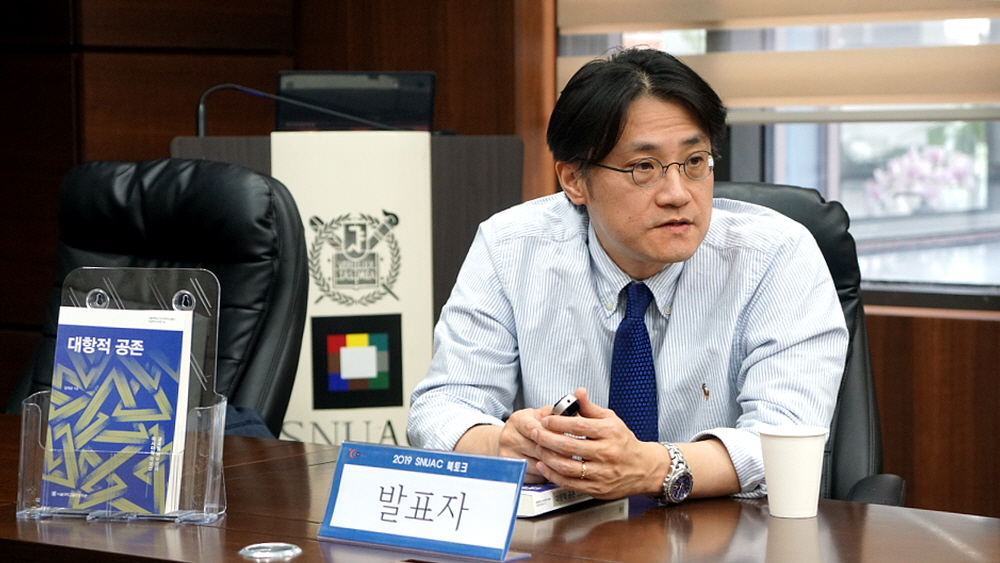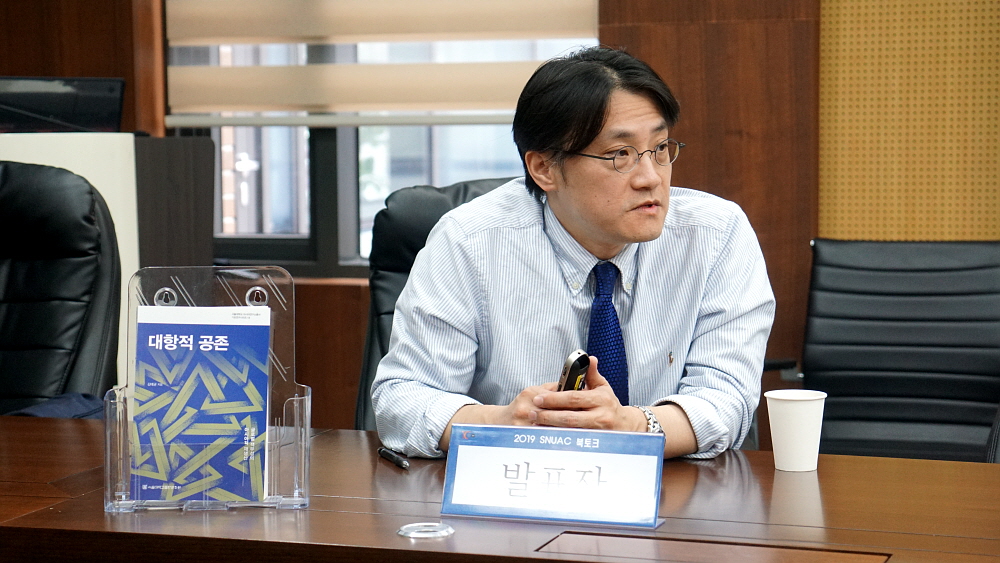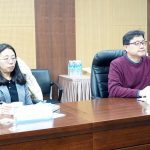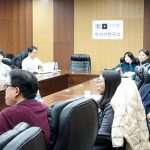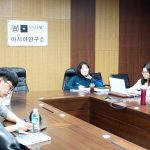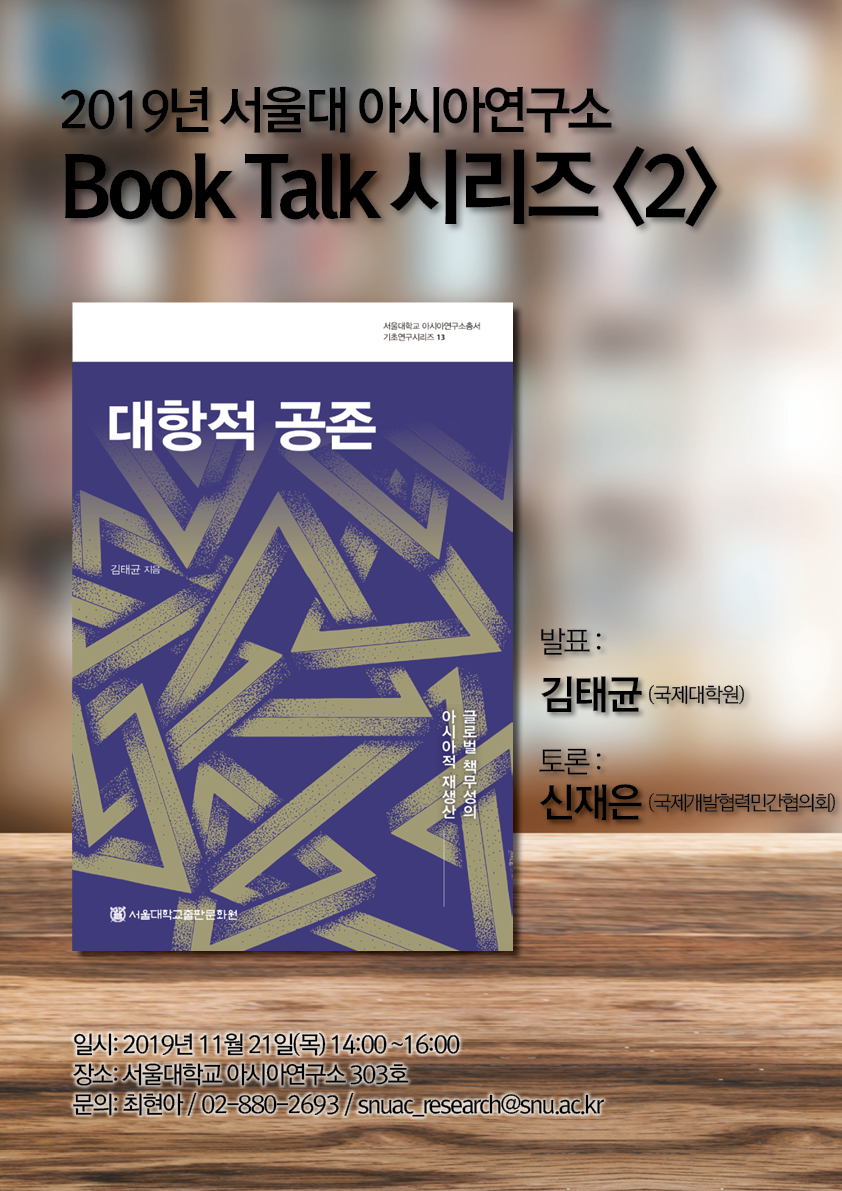
2019 SNUAC Book Talk Series 2
- Date: November 21st, Thursday, 2019 14:00-16:00
- Location: Room 303, SNUAC (Bldg. 101)
2019 SNUAC Book Talk Series 2
Speaker: Taekyoon Kim (SNU Graduate School of International Studies)
Discussant: JaeEun Shin (Korea NGO Council for Overseas Development Cooperation)
On November 21st, the second lecture of 2019 SNUAC Book Talk Series was given by Professor Taekyoon Kim (SNU Graduate School of International Studies), the author of Oppositional Coexistence: The Asiatic Reproduction of Global Accountability in SNUAC Series in Asian Studies. The event was facilitated by Suk-Ki Kong (Research fellow, SNUAC), while the presentation was discussed by JaeEun Shin (Director of Business, Korea NGO Council for Overseas Development Cooperation).
Prof. Kim illustrated that the developmental accountability, newly reproduced by the Asian civil society integrated by the Asian Development Bank (ADB) and NGO Forum, shows differentiation from existing models of other multilateral development banks. ‘Oppositional coexistence’ as the special trajectory of Asian developmental accountability, or the third model of developmental accountability presents the uniquely Asian mechanism and relationship that achieve compromise and consent for co-existence while maintaining an oppositional relationship. It is also a mechanism that can trace how the concept and institution of global accountability are transformed and reproduced in the Asian context. Furthermore, Prof. Kim emphasized that we can find an Asian distinctiveness in how the ADB and the civil society form the productive style of unique relational accountability in the time and space of conflicted politics.


